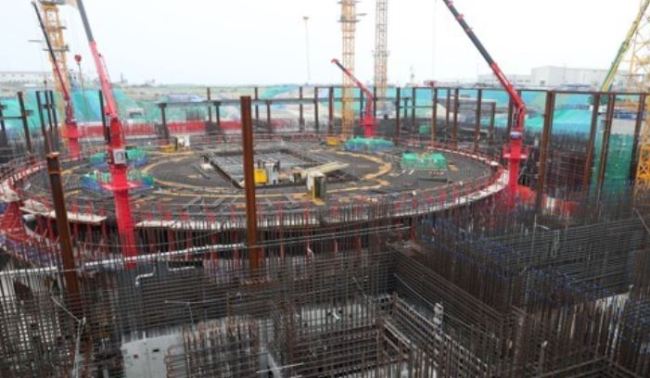Koreans evenly divided over whether to continue or end Shingori nuclear power plant project
By YonhapPublished : Oct. 19, 2017 - 10:26
South Koreans are evenly divided over whether to continue or end the construction of two unfinished Shingori nuclear power reactors, a survey showed Thursday on the eve of a state commission's decision on the reactors' fate.
The Realmeter survey, conducted on 526 adults on Wednesday, showed that 43.8 percent support abandoning the Shingori-5 and Shingori-6 reactor project while 43.2 percent support resuming their construction. The survey's margin of error was plus or minus 4.3 percentage points.
The Realmeter survey, conducted on 526 adults on Wednesday, showed that 43.8 percent support abandoning the Shingori-5 and Shingori-6 reactor project while 43.2 percent support resuming their construction. The survey's margin of error was plus or minus 4.3 percentage points.

About 13 percent said they're unsure about what's best.
The survey is in line with a series of other polls that show pros and cons are neck and neck.
By region, opposition to the project was higher among those in Chungcheong and Jeolla provinces, while support was higher among those in Seoul, Gyeonggi and Gyeongsang provinces.
More than 70 percent of supporters of the liberal ruling Democratic Party expressed opposition to the project, while an overwhelming number (89 percent) of supporters of the conservative main opposition Liberty Korea Party called for resuming construction.
In an effort to reduce South Korea's dependence on nuclear energy, President Moon Jae-in proposed scrapping the reactor project. The government then established the independent commission and charged it with gauging public opinion on the proposal. It also suspended the reactors' construction until a decision is made.
The commission plans to unveil its recommendation Friday.
The reactors were about 28.8 percent complete before construction was suspended in July.
The proposal to scrap work on the reactors sparked heated debate in a country that relies on nuclear reactors for about a third of its electricity. Proponents say the country should phase out nuclear power for safety and environmental reasons, but opponents say it will lead to a shortage in the power supply and a spike in electricity prices, and that too much money has already been spent on the construction. (Yonhap)








![[Graphic News] More Koreans say they plan long-distance trips this year](http://res.heraldm.com/phpwas/restmb_idxmake.php?idx=644&simg=/content/image/2024/04/17/20240417050828_0.gif&u=)
![[KH Explains] Hyundai's full hybrid edge to pay off amid slow transition to pure EVs](http://res.heraldm.com/phpwas/restmb_idxmake.php?idx=644&simg=/content/image/2024/04/18/20240418050645_0.jpg&u=20240419100350)






![[From the Scene] Monks, Buddhists hail return of remains of Buddhas](http://res.heraldm.com/phpwas/restmb_idxmake.php?idx=652&simg=/content/image/2024/04/19/20240419050617_0.jpg&u=20240419175937)

![[KH Explains] Hyundai's full hybrid edge to pay off amid slow transition to pure EVs](http://res.heraldm.com/phpwas/restmb_idxmake.php?idx=652&simg=/content/image/2024/04/18/20240418050645_0.jpg&u=20240419100350)

![[Today’s K-pop] Illit drops debut single remix](http://res.heraldm.com/phpwas/restmb_idxmake.php?idx=642&simg=/content/image/2024/04/19/20240419050612_0.jpg&u=)